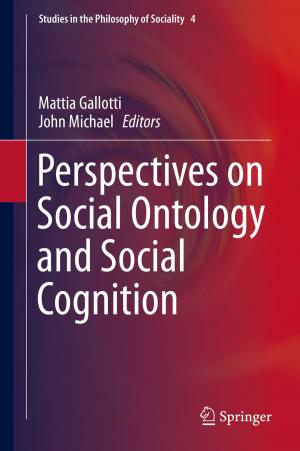Aristotle and The Philosophy of Law: Theory, Practice and Justice
Nonfiction, Reference & Language, Law, Reference, Religion & Spirituality, Philosophy| Author: | ISBN: | 9789400760318 | |
| Publisher: | Springer Netherlands | Publication: | February 14, 2013 |
| Imprint: | Springer | Language: | English |
| Author: | |
| ISBN: | 9789400760318 |
| Publisher: | Springer Netherlands |
| Publication: | February 14, 2013 |
| Imprint: | Springer |
| Language: | English |
The book presents a new focus on the legal philosophical texts of Aristotle, which offers a much richer frame for the understanding of practical thought, legal reasoning and political experience. It allows understanding how human beings interact in a complex world, and how extensive the complexity is which results from humans’ own power of self-construction and autonomy. The Aristotelian approach recognizes the limits of rationality and the inevitable and constitutive contingency in Law. All this offers a helpful instrument to understand the changes globalisation imposes to legal experience today.
The contributions in this collection do not merely pay attention to private virtues, but focus primarily on public virtues. They deal with the fact that law is dependent on political power and that a person can never be sure about the facts of a case or about the right way to act. They explore the assumption that a detailed knowledge of Aristotle's epistemology is necessary, because of the direct connection between Enlightened reasoning and legal positivism. They pay attention to the concept of proportionality, which can be seen as a precondition to discuss liberalism.
The book presents a new focus on the legal philosophical texts of Aristotle, which offers a much richer frame for the understanding of practical thought, legal reasoning and political experience. It allows understanding how human beings interact in a complex world, and how extensive the complexity is which results from humans’ own power of self-construction and autonomy. The Aristotelian approach recognizes the limits of rationality and the inevitable and constitutive contingency in Law. All this offers a helpful instrument to understand the changes globalisation imposes to legal experience today.
The contributions in this collection do not merely pay attention to private virtues, but focus primarily on public virtues. They deal with the fact that law is dependent on political power and that a person can never be sure about the facts of a case or about the right way to act. They explore the assumption that a detailed knowledge of Aristotle's epistemology is necessary, because of the direct connection between Enlightened reasoning and legal positivism. They pay attention to the concept of proportionality, which can be seen as a precondition to discuss liberalism.















